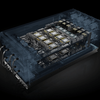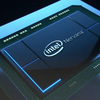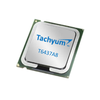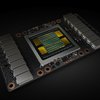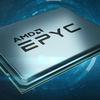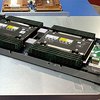At Taiwans GPU Technology Conference this week, NVIDIA founder and CEO Jensen Huang announced the HGX-2, a 16-GPU reference design aimed at some of the most computationally demanding HPC and AI workloads. As a reflection of its tightly integrated design, Jensen characterized the platform as the the worlds largest GPU.
At Intels inaugural AI DevCon conference this week, AI Products Group chief Naveen Rao updated their roadmap for its artificial intelligence chips. The changes will impact the much-anticipated Neural Network Processor, and to a lesser degree, its general-purpose products like Xeons and FPGAs.
Tachyum, a Silicon Valley startup has unveiled a new processor that the company says can tackle a broad range of workloads in HPC, data analytics, artificial intelligence, and web services, while using a fraction of the power of existing chips.
Google has demonstrated an artificial intelligence technology that represents the most sophisticated example to date of a computer engaging in natural conversation with a human. Upon hearing the interaction, some listeners felt the software had convincingly passed the Turing test.
Thanks to the discovery of the Higgs boson in 2012, CERNs Large Hadron Collider (LHC) has probably become the most widely recognized science project on the planet. Less well-known is the computing infrastructure that supports this effort and the demands that are placed upon it.
Google has announced it isoffering NVIDIA Tesla V100 GPUs for its HPC and machine learning cloud customers.But how willthe company square this with its TPU cloud offering?
The British government and the private sector are investing close to 1 billion pounds to boost the countrys artificial intelligence sector. The investment, which was announced on Thursday, is part of a wide-ranging strategy to make the UK a global leader in AI and big data.
After four years of development, the US Department of Energy (DOE) is releasing the Energy Exascale Earth System Model (E3SM), a computational platform for performing high-resolutions simulation of the weather and other earth systems.
For the first time in five years, Cray will be offering supercomputers equipped with AMD chips. On Wednesday the company announced it has added support for EPYC 7000 processors in its CS500 product line.
A trio of UK universities will install a set of HPE Apollo 70 clusters powered by Caviums ThunderX2 ARM processors. The effort is part of a three-year project, known as Catalyst UK, which is evaluating the potential of ARM-based supercomputing.
